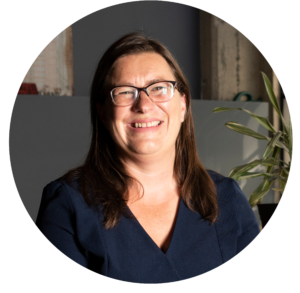The Founder’s Guide to First Sales Hires
 Ashley Dotterweich
Ashley Dotterweich
Technical startups sometimes believe that they don’t (and won’t ever) need a sales team. But if your aspirations include selling to enterprise customers, you’ll eventually need someone who has the skills to take you there. Hiring great salespeople is hard — hiring the first great salesperson can be a major challenge. In this article we’ve pulled together advice from a variety of startup founders, talent managers and sales leaders in the Heavybit community who have successfully gone through the process of finding that first sales hire for their teams.
When You’re Ready to Hire Your First Salesperson
Founders should be selling their product long before they’re ready to hire a salesperson. But when you’re ready to graduate beyond founder-led sales? Here are some signs that founders should look if they’re debating making that first hiring move:
- You have product-market fit. Even an excellent salesperson won’t be able to make an impact if you haven’t proven that people are willing to pay for your product.
- You have at least 5-10 customers. By the time you have a strong cohort of early customers, you’ll start to identify trends in the sales cycle that will help you understand how to build a process around sales.
- Founder-led sales has become a bottleneck. At the beginning, you likely don’t have so many deals to manage that you can’t handle them yourself. But at some point, your pipeline will outpace your bandwidth. During a panel on transitioning from founder-led sales, LaunchDarkly co-founder and CEO Edith Harbaugh said that she knew it was time to hire sales when her involvement in the sales process became a blocker:
I became the bottleneck. Because people would be, “Where’s my order form? I’m ready to sign.” And I would have to type up the order forms, and I was the backlog. I mean, that is a really obvious [sign]. When people want to give you money. They’re like, “Come on. Give me the order form.”

Something to keep in mind is that it will take longer to hire a good salesperson than you might expect. Whalr founder Mitch Morando warns that to find that first (or even second) sales hire will probably take somewhere between 3 to 12 months to find because of the unique skillset the role requires: “They’re not your typical sales person. They’re probably more of a product person who knows how to sell.” If you anticipate needing that sales hire in the coming year, it might be worthwhile to start the hiring process sooner rather than later.

The Profile of a First Sales Hire
A Seller, Not a Manager
One of the most important things to look for is the willingness to do the hard work of selling. In a session on Sales Hiring Strategy, Atrium HQ co-founder Pete Kazanjy explained the importance of hiring the right level for your first salesperson. A VP might seem like a strong candidate to build a team around, but they may not have the skills (or the desire) to do demo after demo for weeks on end.

“The problem with that person frequently is that they’re not a do-er, they’re a manager and what you want right now is you want another seller, or there’s an intermediary there. The a design pattern that I like for a first sales manager hire (or a first seller/sales manager hire) is either a sales manager, or a high potential sales manager who hasn’t been out of the trenches for so long that he or she can’t do a demo,” said Pete.
Ability to Work with Ambiguity
Another key characteristics of a first sales hire is comfort with ambiguity. Their role will be necessarily undefined, so you’ll need someone who can roll with a variable list of responsibilities. “As the first sales hire, there’s no playbook. You’ve got to get out there, figure things out. So you also have to look for somebody who’s really curious,” says talent recruiter Sarah Arcoleo.

Ultimately, your first sales person doesn’t need to just sell. They need to create processes where there aren’t any. Strong communication and documentation skills will help ensure that the transition from one salesperson to two, three and beyond runs smoothly.
This is why many founders ultimately caution against hiring someone because they have experience at a big enterprise. The experience of being a salesperson on a large, established organization is very different from the experience of an early sales hire. While a salesperson at Salesforce might be experienced with closing large deals with the infrastructure of a mature team around them, they may not thrive in an environment where they need continually need to improvise.
Comfortable Selling to Developers

Does your first sales hire need to be very technical? Not necessarily. They should be comfortable with your tech and comfortable with selling to developers, but closing deals is a more important skill than being able to code for sales people.
“I don’t necessarily think that all salespeople who are in tech are necessarily the right salespeople for you. We found this out,” says Armon Dadgar, Co-founder and CTO of HashiCorp. “Even within the tech sector you’ll see there’s a lot of folks that they’ve built their career selling to a CIO.”
What to Look for During Interviews
A unique challenge of hiring sales is that because they’re trained in sales, they’re often great at selling themselves. As a result, it can be hard to separate excellent salespeople from those who are simply great at pitching themselves.
Show Skills, Don’t Tell
If you’re hiring an engineer, you’re probably wouldn’t hire them without doing a hands-on coding session. “One of the things that I always like to do with salespeople is have them sell me their solution. I don’t really think it’s fair to have them try to sell you your solution, or at least it’s higher risk because them getting intimate with your solution is probably going to be a process over time,” says Pete Kazanjy.
Experience with a Similar ACV Deals
Look for someone with experience selling deals with a similar annual contract value (ACV) to what you’re targeting. “A salesperson who’s kicked ass selling a $12,000-a-year product is not going to be the same person who kicks ass selling $120,000, is not going to be the same person that kicks ass selling $1.2 million. That’s something that’s often overlooked,” said Fred Stevens-Smith, co-founder and CEO of Rainforest QA.

Context for Their Numbers
A good sales candidate will have performance metrics on their CV. It can be easy take numbers out of context and smooth over any rough edges, so drill down into those numbers and learn more about the context of their performance
A Good Track Record with Teams
When you think you’ve found a good fit, ask for references and follow up on them. Great salespeople don’t work in a vacuum, and anyone who claims good numbers should have references from past team members to back them up. Sales necessarily requires good people skills, so a candidate who can’t surface at least one or two managers and colleagues to vouch for them should be a hiring red flag.
The Two Rep Rule: How Many “First Sales Hires” Should You Look For?
If you’ve spend any time reading about sales hiring, you’ve likely encountered the concept of hiring two salespeople as your “first hire” as a way to A/B test sales, create a healthy level of competition and more quickly gather data about your sales process. Sales hiring leaders agreed that if you can find two great sales hires at the same time, hiring both can be a great way to learn quickly. But finding one great sales person is hard enough, so don’t worry too much if you can’t hire two right off the bat.
Next Steps: Learn More About Early Sales Hires
Making your first sales hire is a challenging but essential step to growing your business. Subscribe for updates to find out when we have new events and content on sales strategy, and in the meantime, check out the complete versions of our founders’ and sales hiring experts’ discussions and talks linked above for more context on hiring your first salesperson.
Subscribe to Heavybit Updates
You don’t have to build on your own. We help you stay ahead with the hottest resources, latest product updates, and top job opportunities from the community. Don’t miss out—subscribe now.
Content from the Library
How to Market Your User Stories
You’ve written a great case study for a happy user, and you’re ready to get it out into the world. Now what? Case studies and...
How to Execute SaaS POCs that Convert
A well-run SaaS Proof-of-Concept (POC), paid pilot, or trial period can be the key to capturing and converting prospects,...
Sales Prospecting for Founders: Tips from Mitch Morando
In a members-only session with SaaS sales leader Mitch Morando, Heavybit member companies learned how to kick off founder-led...